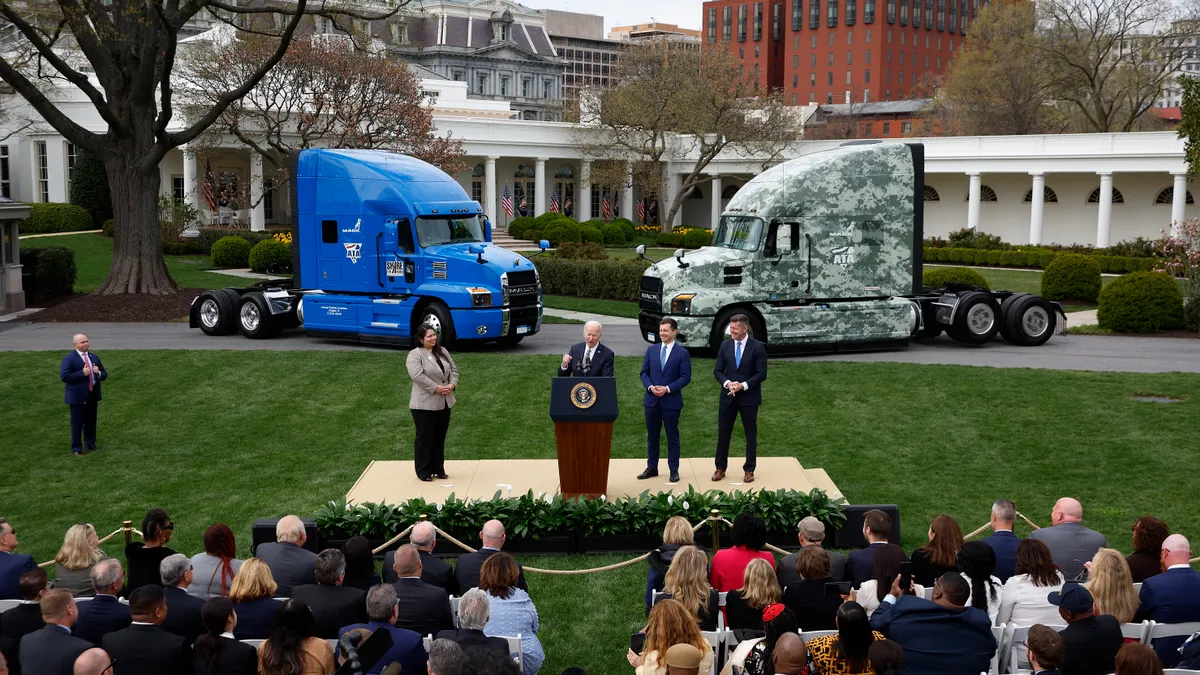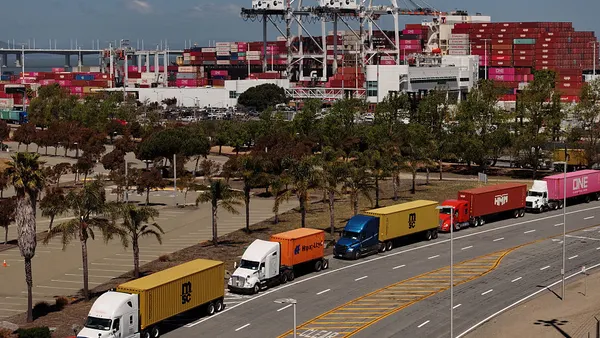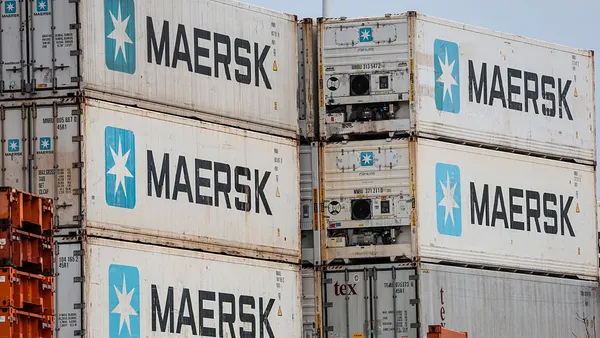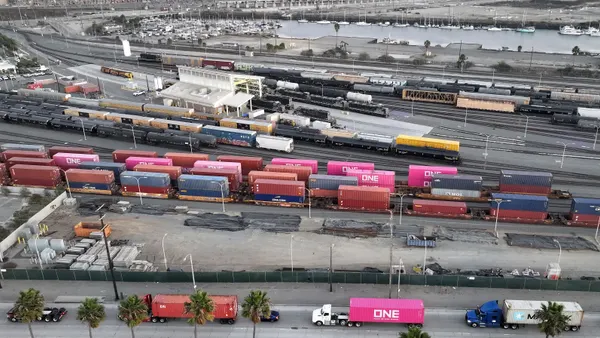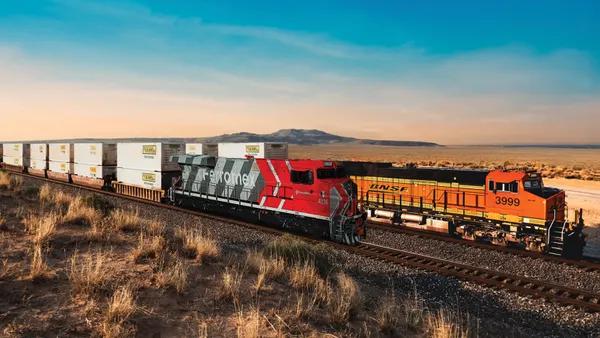Dive Brief:
- The Biden administration launched an Office of Multimodal Freight Infrastructure and Policy within the Department of Transportation to help maintain and improve national supply chains, the White House announced Monday.
- The office, created by the Bipartisan Infrastructure Law, received $2 million in funding for the 2023 fiscal year. President Biden’s FY2024 budget requests $7.3 million for the office, a U.S. Department of Transportation spokesperson told Trucking Dive.
- Allison Dane Camden, a former Washington State Department of Transportation official, will lead the office as deputy assistant secretary for multimodal freight infrastructure and policy. The office will develop a National Multimodal Freight Network, review state freight plans and advance the Freight Logistics Optimization Works program with the Bureau of Transportation Statistics.
Dive Insight:
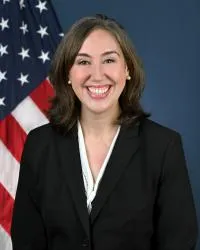
The office’s launch was among several supply chain-related White House announcements made on Cyber Monday, with the public’s attention focused on supply chains during the largest online shopping day of the year.
Hiring for the new office is underway, though staffing numbers have not yet been finalized, according to the DOT spokesperson.
Camden was deputy assistant secretary for multimodal development and delivery at the Washington State DOT, leading a team of 800 workers across 11 divisions, before serving as director of external affairs, according to an online bio. She spent a decade on Capitol Hill as a policy adviser to three members of Congress.
The new government arm represents an extension and expansion of the work begun with Biden’s creation of a port envoy role in 2021, to which the president appointed John Porcari amid major port disruption. The role’s responsibilities widened to include supply chains when retired Gen. Stephen Lyons took up the post last year.
Porcari called the office’s launch “a milestone” in a phone interview with Trucking Dive Monday.
"After the initial firefighting and response, you need to build capacity to make sure it doesn't happen again, and if it does, we can respond quickly and comprehensively."
John Porcari
U.S. Department of Transportation adviser, former port envoy
The former Maryland transportation secretary, who now informally advises the federal DOT, described the envoy role as a “triage” position that mostly entailed “working to respond to a crisis that had already unfolded.”
“I was happy to be the first responder,” he said. “But after the initial firefighting and response, you need to build capacity to make sure it doesn't happen again, and if it does, we can respond quickly and comprehensively.”
Dedicating an office to continuing work on the FLOW initiative and the alignment of a patchwork of disparate state freight plans will help keep the work elevated as a priority, Porcari said.
“It puts goods movement on an equal footing with moving people in transportation,” he said. “It’s literally the lifeblood of our economy. It’s not just a matter of national economic performance. It's a matter of national security.”
It was personally gratifying, too, Porcari said, to see what he called the “muscle memory” of lessons learned from the pandemic response built into a permanent government capacity.
“On a macro scale, it’s a national competitive advantage for the U.S., if we do it well,” he said.



